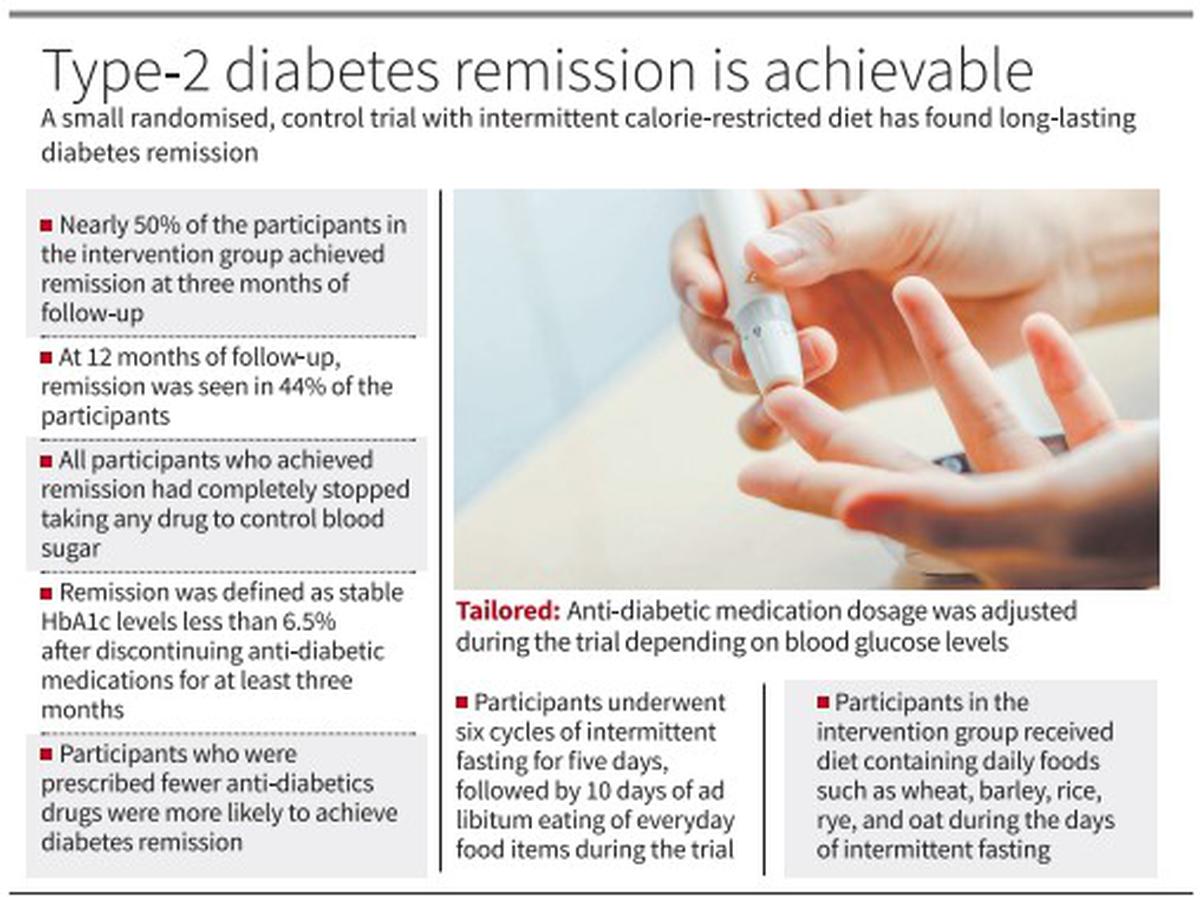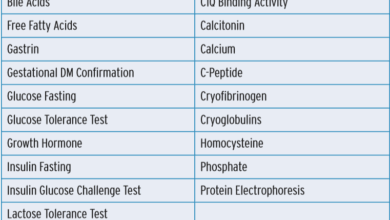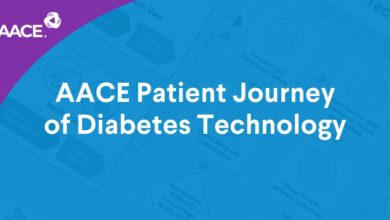
Crash diet diabetes remission is a tempting prospect, but often a dangerous one. The allure of rapid weight loss and potential remission from diabetes can be strong, but the potential risks are significant. This in-depth look examines the pros and cons of using crash diets to potentially achieve diabetes remission, emphasizing the importance of consulting a healthcare professional before making any dietary changes.
We’ll explore the characteristics of crash diets, examining their potential impact on blood sugar levels, and compare them to sustainable weight loss strategies. We’ll also delve into the complexities of diabetes remission, highlighting the factors that contribute to it and the potential obstacles. Crucially, we’ll discuss the potential risks and benefits of crash diets for people with diabetes, providing a balanced perspective on their use in managing the condition.
Understanding Crash Diets

Crash diets promise rapid weight loss, often through extreme calorie restriction and specific food eliminations. However, these approaches often lack long-term sustainability and can have detrimental effects on overall health. Understanding the characteristics, potential risks, and physiological consequences of crash diets is crucial for anyone seeking healthy and lasting weight management.
Characteristics of a Crash Diet
Crash diets are characterized by drastic reductions in calorie intake, typically below the recommended daily allowance. They often involve significant restrictions on certain food groups, promoting the rapid loss of water weight, rather than actual fat loss. These diets typically focus on quick results, rather than balanced nutrition and long-term lifestyle changes. This rapid weight loss often comes at the expense of vital nutrients and can disrupt the body’s metabolic processes.
Examples of Popular Crash Diets and Their Potential Risks
Several popular crash diets exist, each with its own set of restrictions and potential health risks. The “Atkins Diet,” for instance, severely limits carbohydrates, promoting the body to use fat for energy. While this can lead to quick weight loss, it can also lead to nutritional deficiencies and potential kidney problems, particularly in those with pre-existing conditions. The “South Beach Diet” restricts certain carbohydrates and fats, and though it’s generally considered less extreme than Atkins, it still requires strict adherence and can lead to nutrient deficiencies if not carefully planned.
Other examples include the “Master Cleanse,” which relies heavily on a liquid diet, and the “5:2 Diet,” which involves drastically reducing calorie intake for two days a week. Each diet carries specific risks, and consulting with a healthcare professional is essential before starting any of these programs.
Physiological Effects of Rapid Weight Loss on the Body
Rapid weight loss, a hallmark of crash diets, can negatively impact various bodily functions. The body may enter a state of starvation, triggering a hormonal response to conserve energy. This can lead to a decrease in metabolism, making it harder to maintain weight loss in the long term. Furthermore, rapid loss of water weight can cause dehydration and electrolyte imbalances.
Muscle loss can occur as the body breaks down lean tissue for energy, leading to a decreased metabolic rate and impacting overall strength and health.
Crash Diets vs. Sustainable Weight Loss Strategies
Sustainable weight loss strategies focus on gradual and manageable changes to dietary habits and lifestyle. These strategies emphasize balanced nutrition, portion control, regular exercise, and stress management. In contrast, crash diets often lead to unsustainable results and can disrupt metabolic processes, making long-term weight maintenance extremely challenging. Crash diets often lack the crucial components of a balanced and healthy lifestyle.
Comparison of Different Crash Diets
| Diet Name | Duration | Key Restrictions | Potential Risks |
|---|---|---|---|
| Atkins Diet | Variable, often long-term | High protein, very low carbohydrate | Kidney problems, nutritional deficiencies, constipation, high cholesterol |
| South Beach Diet | Variable, often long-term | Restricted carbohydrates and fats | Nutritional deficiencies, difficulty maintaining long-term adherence |
| Master Cleanse | Typically 10-14 days | Liquid diet, limited food groups | Severe dehydration, electrolyte imbalances, nutritional deficiencies |
| 5:2 Diet | Variable, often long-term | Two days per week with severely reduced calorie intake | Potential for nutrient deficiencies, difficulty maintaining consistency, may negatively affect blood sugar levels |
Diabetes Remission
Diabetes remission, a significant health achievement, is not simply about controlling blood sugar; it’s about potentially reversing the underlying disease process. It involves achieving and maintaining blood sugar levels within a healthy range without medication for a specific period, typically at least 6 months. This process varies significantly from person to person, and understanding the nuances of diabetes remission is crucial for those affected.Diabetes remission is not a cure, but rather a profound improvement in health status.
While complete remission is possible, ongoing monitoring and lifestyle adjustments are often necessary to maintain this state. It’s important to understand that remission rates and the factors contributing to it differ between the various types of diabetes.
Types of Diabetes and Remission
Different types of diabetes present distinct challenges and opportunities for remission. Type 1 diabetes, an autoimmune condition, is less likely to be reversed through lifestyle changes alone. Type 2 diabetes, often linked to lifestyle factors like diet and physical inactivity, is more responsive to interventions that address these factors. Gestational diabetes, which occurs during pregnancy, typically resolves after delivery, but long-term risks for developing Type 2 diabetes later in life still exist.
Understanding these distinctions is key to managing expectations and seeking appropriate medical guidance.
Factors Contributing to Diabetes Remission
Several factors can influence the likelihood of diabetes remission. These include aggressive lifestyle changes, particularly focusing on diet and exercise. A healthy diet, low in processed foods and sugar, rich in fruits, vegetables, and whole grains, plays a vital role. Regular physical activity, promoting weight loss and improved insulin sensitivity, is also crucial. Early diagnosis and intervention can significantly improve outcomes.
Furthermore, psychological support and stress management are vital for sustained lifestyle changes. These factors are interconnected and work synergistically to achieve and maintain remission.
Potential Benefits of Diabetes Remission
Understanding the benefits of diabetes remission can motivate individuals to pursue this health goal. The following table Artikels potential advantages.
| Benefit | Explanation | Potential Impact |
|---|---|---|
| Reduced Risk of Complications | Remission significantly lowers the risk of developing serious complications associated with diabetes, such as heart disease, stroke, kidney disease, nerve damage, and eye problems. | Improved overall health and longevity. |
| Improved Quality of Life | By managing blood sugar levels effectively, individuals experience improved energy levels, better sleep, and increased overall well-being. | Enhanced physical and mental health. |
| Reduced Medication Use | In some cases, individuals may no longer require medication for managing blood sugar levels, reducing potential side effects and associated costs. | Cost savings and reduced potential for adverse drug reactions. |
| Enhanced Self-Management Skills | The process of achieving remission empowers individuals to develop strong self-management skills, enabling them to make informed decisions about their health. | Improved ability to prevent and manage future health challenges. |
Obstacles to Diabetes Remission
Obstacles to diabetes remission can arise from various sources. Maintaining a strict dietary regimen and regular exercise routine can be challenging, particularly in the long term. Addressing psychological factors like stress and emotional well-being is crucial for sustained lifestyle changes. The complexity of the disease process and the presence of co-morbidities can influence the likelihood of remission.
Understanding and proactively addressing these obstacles can significantly improve the chances of achieving and maintaining remission.
Crash Diets and Diabetes Remission
Crash diets, often promising rapid weight loss, are a tempting solution for many individuals. However, their impact on diabetes remission is complex and far from straightforward. While some may experience temporary improvements in blood sugar levels, the long-term effects and overall health implications need careful consideration. This exploration delves into the potential relationship between crash diets and diabetes remission, contrasting their short-term effects with sustainable dietary changes and highlighting the crucial role of holistic lifestyle adjustments.Crash diets frequently involve significant caloric restrictions and drastic changes in dietary composition.
These rapid shifts can lead to initial improvements in blood sugar control, potentially mimicking the effects of remission. However, these improvements are often temporary and unsustainable. The key distinction lies in the long-term maintenance of these improvements and the holistic well-being of the individual.
Potential Relationship Between Crash Diets and Diabetes Remission
Crash diets may temporarily lower blood glucose levels due to reduced caloric intake and rapid weight loss. This can sometimes lead to a state where blood sugar levels are more effectively managed, possibly mimicking remission. However, this is a fragile state. Sustaining these reductions through long-term, healthy eating habits is crucial. Simply put, crash diets often fail to address the underlying causes of diabetes, leaving the individual vulnerable to a relapse.
Short-Term Effects of Crash Diets on Blood Sugar Levels
Crash diets often result in rapid drops in blood sugar levels. This is a direct consequence of the significant reduction in calorie intake, which can lead to decreased insulin production and resistance. However, the initial improvements are often unsustainable and may mask the underlying issues that contributed to the condition.
Long-Term Effects of Sustained Healthy Eating
Sustained healthy eating habits, unlike crash diets, focus on gradual and balanced dietary changes. They emphasize whole foods, nutrient-rich meals, and portion control. This approach helps in regulating blood sugar levels over the long term, improving insulin sensitivity, and promoting weight management without risking adverse health effects. For instance, a diet rich in fiber-rich foods and lean protein helps maintain stable blood sugar levels, unlike the dramatic fluctuations often seen with crash diets.
Potential Strategies to Safely Induce Remission Through Dietary Changes
Safe and sustainable strategies for inducing remission through dietary changes focus on gradual improvements in eating habits. These strategies incorporate mindful eating, portion control, and the consumption of whole, unprocessed foods. For example, incorporating more fruits, vegetables, and whole grains into the diet while reducing processed foods and sugary drinks promotes sustained blood sugar control.
Negative Impact of Crash Diets on Long-Term Health Outcomes for People with Diabetes
Crash diets can have detrimental effects on long-term health outcomes for individuals with diabetes. They may lead to nutrient deficiencies, electrolyte imbalances, and even digestive issues. Rapid weight loss often results in a loss of lean muscle mass, which can impair metabolism and increase the risk of long-term complications. Furthermore, crash diets can disrupt the delicate balance of the body’s hormonal systems, leading to unpredictable and potentially harmful effects.
Role of Lifestyle Changes Beyond Diet in Diabetes Remission
Diabetes remission is not solely dependent on dietary changes. Lifestyle factors like regular physical activity, stress management, and adequate sleep play critical roles. Exercise helps improve insulin sensitivity, while stress management techniques, like meditation or yoga, can reduce the body’s stress response, impacting blood sugar control. Consistent sleep patterns are equally important, as sleep deprivation can disrupt hormonal balances that regulate blood sugar.
While crash dieting might seem like a quick fix for diabetes remission, it’s crucial to approach such a significant health change with a balanced approach. It’s also important to consider if e-cigarettes contain prescription drugs, as this could potentially affect your overall health journey. A comprehensive understanding of the ingredients in various products, like do e cigarettes contain prescription drugs , can greatly impact your well-being.
Ultimately, a holistic strategy for diabetes remission, incorporating healthy eating habits and lifestyle changes, is key to long-term success.
For instance, individuals with diabetes may benefit from joining support groups or engaging in activities that promote relaxation and stress reduction.
Potential Risks and Benefits
Crash diets, while tempting for rapid weight loss, often come with significant risks, particularly for individuals with diabetes. Understanding these potential pitfalls is crucial for making informed decisions about managing blood sugar levels and overall health. A balanced approach to weight management, focusing on sustainable lifestyle changes, is generally more effective and safer than extreme dietary restrictions.The potential benefits of weight loss in managing diabetes are well-documented, but the methods used to achieve that weight loss are critical.
Crash diets, often lacking nutritional balance, can negatively impact blood sugar control and overall health, hindering rather than aiding long-term management. A balanced approach to weight loss and dietary management can have positive effects on diabetes control.
Health Risks of Crash Diets for People with Diabetes, Crash diet diabetes remission
Crash diets often lead to significant fluctuations in blood sugar levels, which can be particularly problematic for individuals with diabetes. Rapid weight loss can also trigger a surge in ketone bodies, potentially leading to ketoacidosis, a serious complication that requires immediate medical attention. Furthermore, restrictive diets can cause deficiencies in essential nutrients, leading to further health complications. The body may also struggle to adapt to the sudden change in calorie intake, potentially causing digestive issues, fatigue, and even nutritional deficiencies.
Benefits of Weight Loss for Diabetes Management
Weight loss, achieved through healthy, sustainable methods, can significantly improve diabetes management. Reduced body weight often leads to improved insulin sensitivity, allowing the body to use insulin more effectively. This can help to lower blood sugar levels, reducing the need for medication and improving overall health. Consistent weight management, alongside a balanced diet and regular exercise, is crucial for long-term diabetes management.
For instance, studies show that even modest weight loss can have a positive impact on blood glucose control in people with type 2 diabetes.
Long-Term Effects of Crash Diets on Blood Sugar Regulation
Crash diets can disrupt the body’s natural blood sugar regulation mechanisms. The rapid fluctuations in calorie intake can lead to unpredictable and potentially dangerous spikes and dips in blood glucose levels. This instability can make it challenging to maintain stable blood sugar levels, even after the diet is over. Sustained high blood sugar levels can have long-term health implications, including damage to blood vessels and nerves.
Potential Risks and Benefits Table
| Aspect | Risk | Benefit | Mitigation Strategies |
|---|---|---|---|
| Rapid Weight Loss | Significant fluctuations in blood sugar levels, increased risk of ketoacidosis, nutritional deficiencies, digestive issues, and fatigue. | Potential short-term weight loss. | Consult a doctor or registered dietitian to create a healthy, balanced meal plan. Prioritize gradual, sustainable weight loss strategies, such as portion control and regular exercise. |
| Nutrient Deficiencies | Lack of essential vitamins and minerals, leading to various health complications. | (None directly related to nutrient deficiencies) | Ensure a balanced diet rich in fruits, vegetables, whole grains, and lean proteins. Consider taking a multivitamin if necessary, but only under the guidance of a healthcare professional. |
| Long-Term Blood Sugar Control | Disruption of blood sugar regulation mechanisms, potential for sustained high blood sugar levels, and increased risk of long-term health complications. | Potential for improved insulin sensitivity and reduced blood sugar levels with sustainable weight loss. | Focus on sustainable lifestyle changes, including regular exercise and a balanced diet. Consult a doctor or registered dietitian to develop a personalized plan. |
Dietary Recommendations for Diabetes Management

Managing diabetes effectively involves more than just medication; a well-structured diet plays a crucial role in controlling blood sugar levels and overall health. A balanced approach to nutrition can significantly improve the quality of life for individuals with diabetes. Consistent healthy choices, tailored to individual needs, can help manage symptoms and prevent complications.
Dietary Guidelines for Diabetes Management
A crucial aspect of diabetes management is understanding and following dietary guidelines. These guidelines provide a framework for making healthy food choices that support blood sugar control. These recommendations focus on providing essential nutrients while maintaining a healthy weight and promoting overall well-being.
| Food Group | Examples | Recommended Portions | Nutritional Value |
|---|---|---|---|
| Fruits | Apples, bananas, berries, oranges | 1-2 servings per day | Vitamins, minerals, fiber |
| Vegetables | Leafy greens, broccoli, carrots, tomatoes | 2-3 servings per day | Vitamins, minerals, fiber, low in calories |
| Whole Grains | Brown rice, quinoa, whole-wheat bread | 2-3 servings per day | Complex carbohydrates, fiber, sustained energy release |
| Lean Protein | Chicken breast, fish, beans, lentils | 1-2 servings per day | Essential amino acids, satiety, important for building and repairing tissues |
| Dairy/Alternatives | Low-fat milk, yogurt, almond milk | 1-2 servings per day | Calcium, protein, vitamin D |
| Healthy Fats | Avocados, nuts, olive oil | Moderate portions | Essential fatty acids, support cell function |
| Legumes | Beans, lentils, chickpeas | 1-2 servings per day | Fiber, protein, vitamins and minerals |
Importance of Balanced Nutrition
Balanced nutrition is paramount in diabetes management. It’s not about deprivation but about choosing foods that provide the necessary nutrients without significantly raising blood sugar levels. A balanced diet helps maintain stable blood sugar levels, promoting overall well-being and reducing the risk of complications. By focusing on nutrient-rich foods, individuals can effectively manage their diabetes and improve their quality of life.
Maintaining a healthy weight and blood sugar levels is crucial for preventing long-term complications such as nerve damage, kidney disease, and eye problems.
Incorporating Dietary Recommendations into Daily Routines
Implementing these dietary recommendations into daily routines is achievable with careful planning and preparation. Start by gradually incorporating small changes into your existing meal plan. For example, swapping sugary drinks for water or substituting white bread with whole-wheat bread. Meal prepping can also help in maintaining consistency with healthy choices. Creating a weekly meal plan can help ensure you have healthy options readily available, reducing the temptation to make unhealthy choices.
Making informed choices about food portions is essential to prevent overconsumption and maintain a healthy weight. Tracking your food intake and blood sugar levels can provide valuable insights into how your body responds to different foods, allowing for personalized adjustments to your dietary plan.
Safety Considerations
Crash dieting, while tempting for rapid results, can be extremely risky, especially for individuals with diabetes. Uncontrolled blood sugar fluctuations, a common consequence of drastic dietary changes, can lead to severe health complications. Understanding the potential dangers and adopting a safe and sustainable approach are crucial for managing diabetes effectively.
Importance of Professional Consultation
Consulting a healthcare professional before initiating any significant dietary changes is paramount, particularly for those with diabetes. A doctor or registered dietitian can assess your individual needs, medical history, and current health status to develop a personalized plan that aligns with your specific requirements. They can evaluate your current medication regimen and provide guidance on how dietary adjustments might affect it.
This individualized approach minimizes the risk of adverse effects and ensures the safety and efficacy of the chosen plan.
Gradual and Sustainable Lifestyle Changes
Drastic changes in diet, often associated with crash diets, can disrupt the body’s natural equilibrium and lead to significant metabolic imbalances. Instead of quick fixes, focusing on gradual and sustainable lifestyle modifications is crucial for long-term success. These changes should incorporate a balanced approach to nutrition, regular physical activity, and stress management techniques. Sustainable strategies are more likely to result in long-term health improvements and diabetes remission.
While crash dieting might seem like a quick fix for diabetes remission, it’s important to remember that long-term health is key. Fortunately, there are other approaches that can be effective, and even a migraine app, like migraine app helps people with migraines , can help manage the stress and anxiety that often accompany health challenges. Ultimately, finding a sustainable and balanced plan is crucial for any type of health journey, including crash diet diabetes remission.
Role of Regular Blood Sugar Monitoring
Regular blood sugar monitoring is essential for individuals with diabetes. It provides critical insights into how dietary changes affect blood glucose levels. This data allows for adjustments to the diet and medication, ensuring blood sugar remains within a healthy range. Monitoring helps identify potential complications early and allows for timely interventions. By closely monitoring blood sugar, individuals can proactively manage their diabetes and avoid potentially harmful consequences.
Potential Dangers of Crash Diets for Individuals with Diabetes
Crash diets can pose significant dangers for people with diabetes. Rapid calorie restriction can lead to severe hypoglycemia, a potentially life-threatening condition characterized by dangerously low blood sugar levels. This can result in symptoms like dizziness, confusion, seizures, and loss of consciousness. Additionally, crash diets can disrupt the delicate balance of electrolytes in the body, further increasing the risk of complications.
I’ve been researching crash diet diabetes remission, and it’s a tricky subject. While some people claim quick fixes, it’s crucial to remember that drastic changes can be harmful. Just like how raw dog food is dangerous for pets and people, potentially risky approaches to weight loss can cause more problems than they solve. A balanced approach, focusing on long-term healthy habits, is key to managing diabetes effectively.
Sudden and significant shifts in carbohydrate intake can disrupt insulin sensitivity, making it harder to manage blood sugar levels. Examples include individuals who drastically reduce their carbohydrate intake without consulting a doctor, leading to dangerously low blood sugar levels.
Importance of Patient Education and Support Groups
Comprehensive patient education is crucial for effective diabetes management. Understanding the disease, its implications, and the importance of adhering to a prescribed treatment plan empowers individuals to take an active role in their health. Support groups offer a valuable platform for sharing experiences, providing encouragement, and gaining insights from others navigating similar challenges. These groups offer a network of support and understanding, promoting adherence to treatment plans and fostering a sense of community.
Case Studies (Illustrative)
Understanding the real-world impact of dietary choices on diabetes management requires looking at individual experiences. Case studies, while not definitive scientific proof, offer valuable insights into how different approaches affect blood sugar control and overall health. These examples demonstrate the potential benefits and risks associated with both sustained dietary changes and crash dieting, providing a glimpse into the complexity of managing diabetes.
Positive Effects of Sustained Dietary Changes
Sustained dietary changes, focusing on a balanced approach, can significantly improve blood sugar control. Consider a hypothetical case study of a 45-year-old woman diagnosed with type 2 diabetes. Initially, her HbA1c levels were consistently above 8%. Through a gradual transition to a whole-food, plant-based diet rich in fruits, vegetables, and lean proteins, coupled with regular exercise, she saw a steady decline in her blood glucose levels.
Over six months, her HbA1c levels dropped to 6.5%, indicating improved blood sugar control and reduced risk of diabetes-related complications. This illustrates how consistent, well-planned dietary adjustments, rather than extreme measures, can lead to long-term positive outcomes.
Potential Risks of Crash Dieting
Crash diets, characterized by drastic reductions in calorie intake, can pose significant risks for individuals with diabetes. Imagine a 55-year-old man with type 1 diabetes who, seeking rapid weight loss, adopted a very-low-calorie diet. This resulted in a significant drop in his blood glucose levels, initially appearing positive. However, due to the drastic calorie restriction, his body started breaking down muscle tissue for energy, leading to a decrease in lean muscle mass.
This, in turn, negatively affected his insulin sensitivity, making it harder to regulate blood glucose long-term. Furthermore, the rapid weight loss often led to nutrient deficiencies and a lack of sustained lifestyle changes. This case study emphasizes the importance of a gradual, sustainable approach to weight management for those with diabetes.
Negative Impact of Crash Dieting on Blood Sugar Control
Crash diets can disrupt blood sugar control over time. A hypothetical 30-year-old woman with type 2 diabetes, attempting to quickly lose weight, adopted a crash diet involving severely restricted carbohydrates. Initially, her blood sugar levels showed a slight drop. However, this was followed by a series of fluctuations, including periods of dangerously high blood sugar, likely due to the unpredictable nature of the diet.
Furthermore, her body adapted to the extreme calorie restriction, reducing its metabolic rate, which further hindered long-term blood sugar control. This case study highlights the short-term gains and long-term detrimental effects of crash dieting on metabolic health.
Importance of Consulting a Healthcare Professional
A critical aspect of diabetes management is the need for personalized guidance. A case study, though hypothetical, demonstrates this crucial point. A 62-year-old woman with pre-diabetes, attempting to implement a new diet plan without consulting her doctor, experienced significant blood pressure fluctuations. While the diet itself wasn’t inherently harmful, the lack of professional oversight led to potential health risks.
This highlights the necessity of consulting with a registered dietitian or endocrinologist before making significant dietary changes, especially for those with diabetes or pre-diabetes. This is crucial to tailor a safe and effective plan to individual needs and health conditions.
Wrap-Up: Crash Diet Diabetes Remission
In conclusion, while crash diets might offer a temporary solution to weight loss, they are generally not a safe or sustainable approach for diabetes remission. Sustainable lifestyle changes, including a balanced diet and regular exercise, are key to long-term health outcomes. Prioritizing consultation with a healthcare professional is paramount, especially for individuals with diabetes. This article highlights the crucial role of patient education and support groups in navigating the complexities of diabetes management and the importance of avoiding risky crash diets.





